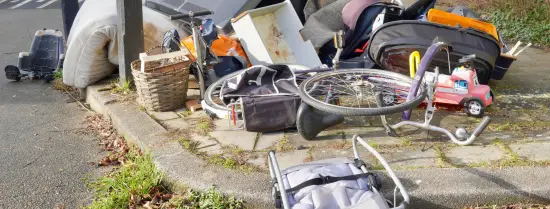
What to do when citizens in residential areas illegaly dump garbarge and household items on the pavement? Most local governments respond by removing waste quickly, following the idea from psychology and behavioral economics that ‘waste attracts waste’.
The city of Rotterdam is a case in point. City workers clean up some neighborhoods more than seven times a week. The question is whether, in the end, this is the best possible policy. Frequent cleaning by the city may make citizens lazy: Why refrain from dumping if the city drops by very often to clean up?
Together with the city of Rotterdam, we set up a field experiment to study the effect of frequent cleaning by the city on citizens’ dumping behavior. At about twenty locations in Rotterdam, the frequency of cleaning carried out by city workers was drastically reduced to about two times per week, whereas at twenty other locations the frequency of cleaning remained unchanged at more than 7 times per week. This was maintained for three months. A detailed record of the amount of waste that was encountered on the streets at all forty locations, both before and during the experiment, makes it possible to reliably estimate what effect the lower frequency of cleaning has on the behavior of the residents.
The results show that after reducing the frequency of cleaning, there was a sharp rise in the amount of waste dumped by residents. A second finding is that the increase in the amount of waste remained about the same during the entire three-month period of the experiment. That is, the ‘spontaneous’ response of the people is almost identical to the longer-term response.
Hence, waste attracts waste, which is why the returns to cleaning frequently are high. On the basis of our results, the city of Rotterdam decided to continue with frequently cleaning up the streets. In addition, we ran further field experiments testing other interventions encouraging citizens to keep the streets clean. Some of those interventions have proven effective in reducing dumping and have been adopted by the city.
See also
- Professor
- Professor
- More information
